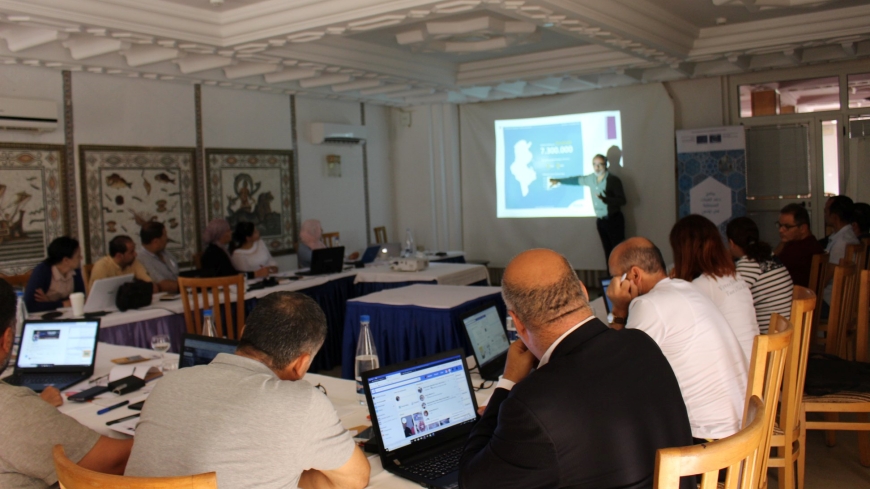From 3 to 10 August, more than fifty local journalists from the public audiovisual media and the Tunis Afrique Presse agency attended a first cycle of training sessions organized by the Council of Europe and the Independent High Authority for Audiovisual Communication (HAICA) in the regions of Monastir, Gafsa, Tataouine and Tunis.
The training sessions were devoted to Fact-Checking techniques on the Internet, with a particular focus, on the tools used to fight false information disseminated and circulated on social networks and the concept of information disorder that can clearly characterize election periods in some countries.
As Tunisia's presidential and legislative elections approach, media professionals will have a crucial role in holding free and transparent elections through reliable and high-quality information, a development long awaited by Tunisian citizens and the international community. This implies, among other things, that Tunisian journalists are equipped to assume this responsibility in terms of professional ethics and practice.
It is with this in mind that the Council of Europe, through its joint project with the European Union "TUNISIA Support for Independent Bodies (PAII-T)", has undertaken to support HAICA in its capacity-building trainings for journalists and public audiovisual media correspondents based in the Tunisian regions, in order to raise their awareness of the rules and challenges of media coverage of the 2019 elections and the risks of information disorder in Tunisia, and therefore train them in the good practices, methods and tools needed to deal with them.
These training sessions follow the organization by HAICA, in partnership with the Council of Europe, last June, of an international seminar in Tunis on the theme of "Internet, social networks and electoral processes", attended by national and international media representatives and leading experts gathered to present and exchange their experiences in the field of Fact-checking.
As one of the recommendations of the seminar, these trainings represent an important platform for journalists working in the regions to better understand misinformation, to differentiate its categories and sources of false "Fake-news" information, to use verification techniques appropriate to the different types of information and facts and in particular to be able to exchange and work together among colleagues.




